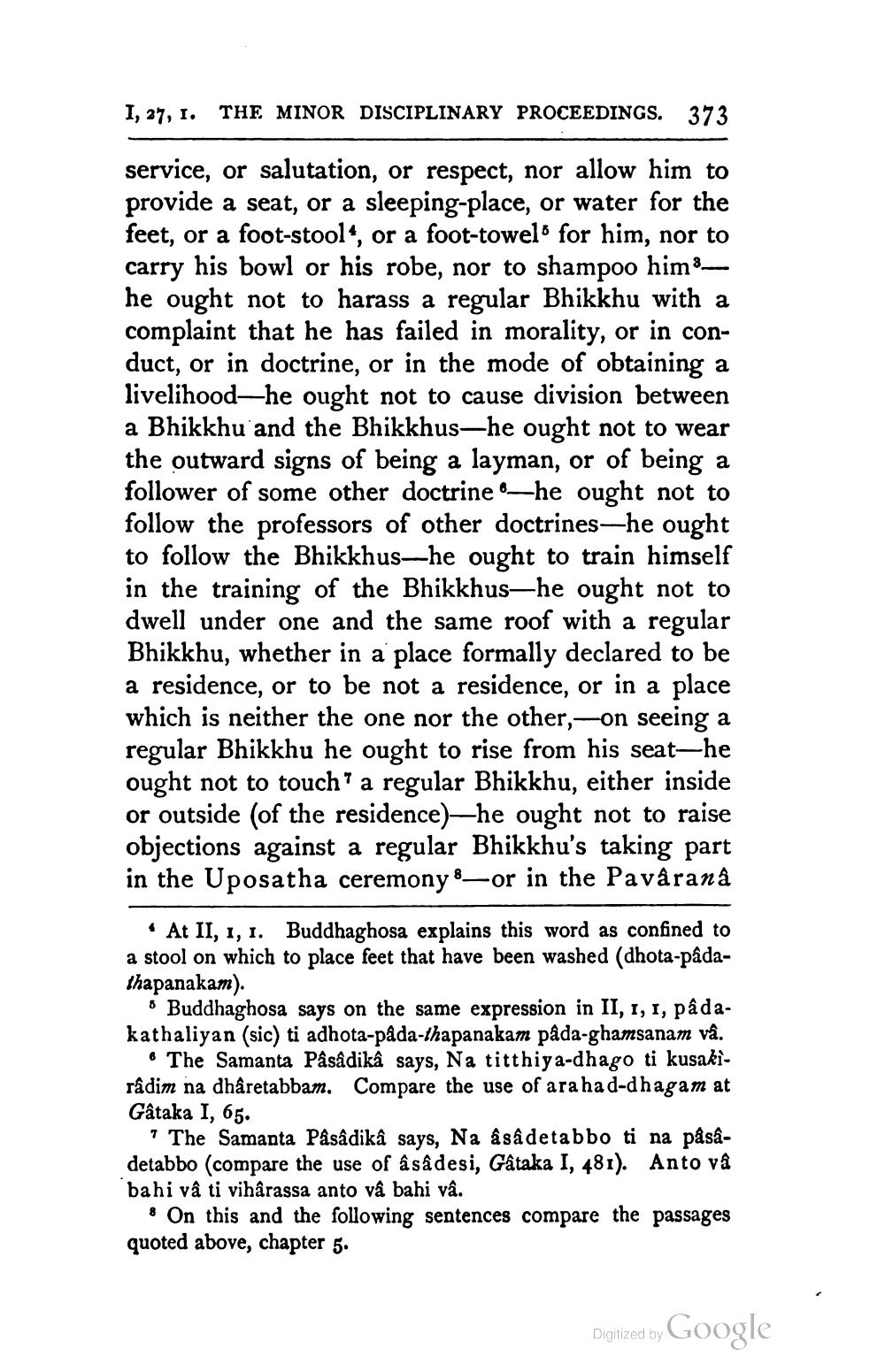________________
I, 27, I. THE MINOR DISCIPLINARY PROCEEDINGS. 373
service, or salutation, or respect, nor allow him to provide a seat, or a sleeping-place, or water for the feet, or a foot-stool, or a foot-towel for him, nor to carry his bowl or his robe, nor to shampoo him3he ought not to harass a regular Bhikkhu with a complaint that he has failed in morality, or in conduct, or in doctrine, or in the mode of obtaining a livelihood-he ought not to cause division between a Bhikkhu and the Bhikkhus-he ought not to wear the outward signs of being a layman, or of being a follower of some other doctrine-he ought not to follow the professors of other doctrines-he ought to follow the Bhikkhus-he ought to train himself in the training of the Bhikkhus-he ought not to dwell under one and the same roof with a regular Bhikkhu, whether in a place formally declared to be a residence, or to be not a residence, or in a place which is neither the one nor the other,-on seeing a regular Bhikkhu he ought to rise from his seat-he ought not to touch" a regular Bhikkhu, either inside or outside (of the residence)—he ought not to raise objections against a regular Bhikkhu's taking part in the Uposatha ceremony - -or in the Pavâranâ
8
At II, 1, 1. Buddhaghosa explains this word as confined to a stool on which to place feet that have been washed (dhota-pâdathapanakam).
Buddhaghosa says on the same expression in II, I, I, pâdakathaliyan (sic) ti adhota-pâda-thapanakam pâda-ghamsanam vâ.
The Samanta Pâsâdikâ says, Na titthiya-dhago ti kusakirâdim na dhâretabbam. Compare the use of ara ha d-dhagam at Gâtaka I, 65.
7 The Samanta Pâsâdikâ says, Na âsâdetabbo ti na pâsâdetabbo (compare the use of âsâdesi, Gâtaka I, 481). Anto vâ bahi vâ ti vihârassa anto vâ bahi vâ.
On this and the following sentences compare the passages quoted above, chapter 5.
Digitized by Google




